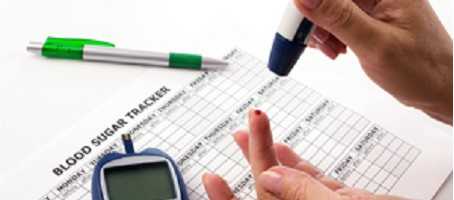A cost cutting measure in Tower Hamlets, London is being used as an example of how the NHS could save as much as £20 million, or more, if it clamps down on restrictions of blood glucose testing supplies for people with type 2 diabetes.
Whilst such a strategy would doubtless save money in the short term, it is one that could well lead to dis-empowerment for people with type 2 diabetes that are actively interested in improving their health and could add significantly to the risks of both short and long term diabetes complications.
The results of the cost cutting intervention were published online on 1 April by the British Journal of General Practice. The intervention involved greatly restricting prescriptions of blood glucose testing to people with type 2 diabetes that were not on insulin.
Strict restriction of blood testing supplies
The study period took place between 2010 and 2013 and involved a total of 35,635 patients with type 2 diabetes and not treated with insulin. Of these, 19,602 were under the care of two Clinical Commissioning Groups (CCG) that imposed strict restriction of self-monitoring supplies and the 16,033 patients were under the care of a CCG that did not impose much stricter restriction of testing supplies.
The study saw use of blood testing supplies reduced from 29.6% to 6.0% within the CCGs that put the cost cutting intervention in place. Within the CCG that did not apply the interventio, use of self-testing supplies fell from 47.1% o 38.7% over the same period.
The study reports that the impact on cost was a 4.9% reduction in the cost of self-testing supplies in the intervention group, compared with an increase of 5.0% within the non-intervention group. The study includes a note that the cost of prescribing of diabetes self-monitoring supplies increased by £19.4 million between 2009 and 2012.
No review of the impact on health
Whilst the study looked at cost savings, it did not review the impact on health of the people with type 2 diabetes that were involved within the study. Self-monitoring of blood glucose can play an important role within the lives of people with non-insulin treated type 2 diabetes.
People on certain tablets for type 2 diabetes, such as sulphonylureas or prandial glucose regulators, face a risk of suffering severe hypoglycemia which is made more difficult to identify, manage and prevent without the use of blood glucose testing.
Self-monitoring of blood glucose also enables people with type 2 diabetes to make informed changes to their lifestyle in order to improve their blood glucose control and reduce the risks of serious long term complications such as kidney disease and foot amputation. In those that are committed to learning from self-testing, monitoring of blood glucose can also act as a strong motivational tool.
In 2014, Diabetes.co.uk responded to concerns from people with type 2 diabetes that were facing test strip restrictions by launching the Type2Testing program. The program not only provided blood glucose testing supplies at a cheaper rate than pharmacies but also included instruction on how users can make the most of blood glucose testing to improve their long term blood glucose control.
The Type2Testing program has seen the average HbA1c, of those that have taken part, drop from an average of 7.6% at the start of the program to 6.7% six months later.
What's new on the forum? ⭐️
Get our free newsletters
Stay up to date with the latest news, research and breakthroughs.






